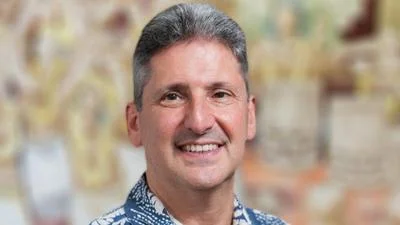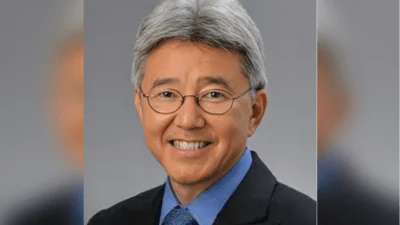The publication is reproduced in full below:
SECURING AMERICA FROM EPIDEMICS ACT
Ms. HOULAHAN. Mr. Speaker, I move to suspend the rules and pass the bill (H.R. 2118) to authorize United States participation in the Coalition for Epidemic Preparedness Innovations, and for other purposes.
The Clerk read the title of the bill.
The text of the bill is as follows:
H.R. 2118
Be it enacted by the Senate and House of Representatives of the United States of America in Congress assembled,
SECTION 1. SHORT TITLE.
This Act may be cited as the ``Securing America From Epidemics Act''.
SEC. 2. FINDINGS.
Congress finds the following:
(1) Due to increasing population and population density, human mobility, and ecological change, emerging infectious diseases pose a real and growing threat to global health security.
(2) While vaccines can be the most effective tools to protect against infectious disease, the absence of vaccines for a new or emerging infectious disease with epidemic potential is a major health security threat globally, posing catastrophic potential human and economic costs.
(3) The COVID-19 pandemic has infected more than 119,960,700 individuals and has killed at least 2,656,822 people worldwide, and it is likely that unreported cases and deaths are significant.
(4) Even regional outbreaks can have enormous human costs and substantially disrupt the global economy and cripple regional economies. The 2014 Ebola outbreak in West Africa killed more than 11,000 and cost $2,800,000,000 in losses in the affected countries alone.
(5) While the need for vaccines to address emerging epidemic threats is acute, markets to drive the necessary development of vaccines to address them--a complex and expensive undertaking--are very often critically absent. Also absent are mechanisms to ensure access to those vaccines by those who need them when they need them.
(6) To address this global vulnerability and the deficit of political commitment, institutional capacity, and funding, in 2017, several countries and private partners launched the Coalition for Epidemic Preparedness Innovations (CEPI). CEPI's mission is to stimulate, finance, and coordinate development of vaccines for high-priority, epidemic-potential threats in cases where traditional markets do not exist or cannot create sufficient demand.
(7) Through funding of partnerships, CEPI seeks to bring priority vaccines candidates through the end of phase II clinical trials, as well as support vaccine platforms that can be rapidly deployed against emerging pathogens.
(8) CEPI supported the manufacturing of the United States-developed Moderna COVID-19 vaccine during its Phase 1 clinical trial, and CEPI has initiated at least 12 partnerships to develop vaccines against COVID-19.
(9) CEPI is co-leading COVAX, the vaccines pillar of the ACT-Accelerator, which is a global collaboration to quickly produce and equitably distribute safe and effective vaccines and therapeutics for COVID-19.
(10) Support for and participation in CEPI is an important part of the United States own health security and biodefense and is in the national interest, complementing the work of many Federal agencies and providing significant value through global partnership and burden-sharing.
SEC. 3. AUTHORIZATION FOR UNITED STATES PARTICIPATION.
(a) In General.--The United States is hereby authorized to participate in the Coalition for Epidemic Preparedness Innovations (``Coalition'').
(b) Designation.--The President is authorized to designate an employee of the relevant Federal department or agency providing the majority of United States contributions to the Coalition, who should demonstrate knowledge and experience in the fields of development and public health, epidemiology, or medicine, to serve--
(1) on the Investors Council of the Coalition; and
(2) if nominated by the President, on the Board of Directors of the Coalition, as a representative of the United States.
(c) Reports to Congress.--Not later than 180 days after the date of the enactment of this Act, the President shall submit to the appropriate congressional committees a report that includes the following:
(1) The United States planned contributions to the Coalition and the mechanisms for United States participation in such Coalition.
(2) The manner and extent to which the United States shall participate in the governance of the Coalition.
(3) How participation in the Coalition supports relevant United States Government strategies and programs in health security and biodefense, including--
(A) the Global Health Security Strategy required by section 7058(c)(3) of division K of the Consolidated Appropriations Act, 2018 (Public Law 115-141);
(B) the applicable revision of the National Biodefense Strategy required by section 1086 of the National Defense Authorization Act for Fiscal Year 2017 (6 U.S.C. 104); and
(C) any other relevant decision-making process for policy, planning, and spending in global health security, biodefense, or vaccine and medical countermeasures research and development.
(d) United States Contributions.--Amounts authorized to be appropriated under chapters 1 and 10 of part I and chapter 4 of part II of the Foreign Assistance Act of 1961 (22 U.S.C. 2151 et seq.) are authorized to be made available for United States contributions to the Coalition.
(e) Appropriate Congressional Committees.--In this section, the term ``appropriate congressional committees'' means--
(1) the Committee on Foreign Affairs and the Committee on Appropriations of the House of Representatives; and
(2) the Committee on Foreign Relations and the Committee on Appropriations of the Senate.
The SPEAKER pro tempore. Pursuant to the rule, the gentlewoman from Pennsylvania (Ms. Houlahan) and the gentleman from New Jersey (Mr. Smith) each will control 20 minutes.
The Chair recognizes the gentlewoman from Pennsylvania.
General Leave
Ms. HOULAHAN. Mr. Speaker, I ask unanimous consent that all Members have 5 legislative days in which to revise and extend their remarks and include extraneous material on H.R. 2118.
The SPEAKER pro tempore. Is there objection to the request of the gentlewoman from Pennsylvania?
There was no objection.
Ms. HOULAHAN. Mr. Speaker, I yield myself such time as I may consume.
Mr. Speaker, I rise today in support of H.R. 2118, the Securing America From Epidemics Act.
I thank my colleague, Representative Ami Bera, chairman of the Subcommittee on Asia, the Pacific, Central Asia and Nonproliferation for championing this important bill that will save the lives and protect the United States from the threat of future pandemics.
This bill would authorize the United States to participate in the Coalition for Epidemic Preparedness Innovations, or CEPI, a private-
public partnership that helps accelerate the development of vaccines against emergent infections, including Ebola and COVID-19.
The COVID-19 crisis has shown just how interconnected our world is and how important vaccines are to ending one of the greatest catastrophes of the 21st century. By developing vaccines and enabling countries to administer vaccine doses effectively, we can end pandemics. We do this by ensuring vaccines get into the arms of the most vulnerable, and by instilling confidence in people that the vaccine saves lives.
Now more than ever with the rise of the deadly delta variant, and COVID-19 cases ravaging clusters across the country where vaccination rates are low, the collective resources of the private sector, multilateral organizations, national governments, civil society, and health experts are all vital to ending the pandemic.
By supporting CEPI, we demonstrate the value of leveraging individual strengths towards collective action and create a leading global framework of developing an effective vaccine response to stop future pandemics.
Mr. Speaker, I reserve the balance of my time.
Mr. SMITH of New Jersey. Mr. Speaker, I yield myself such time as I may consume.
Mr. Speaker, I rise in support of the Securing America From Epidemics Act.
I thank my colleagues, Congressmen Bera and Fitzpatrick, for introducing this bill and for their work to address this important issue.
COVID-19 has shown once again that pandemics know no borders, and that the United States and the world must be better prepared to respond to disease outbreaks, including pandemics, around the world.
The bill authorizes the United States to participate in the Coalition for Epidemic Preparedness Innovations, or CEPI, an alliance of countries and private partners that are financing and coordinating the developing of new vaccines for infectious diseases.
In addition to COVID-19, CEPI has developed a list of priority diseases with epidemic potential, including MERS, the Middle East Respiratory Syndrome.
By leveraging contributions from member states with expertise and funding by private partners, CEPI seeks to develop vaccines before a disease outbreak occurs.
I would note, parenthetically, that in October of 2020, the Trump administration gave CEPI a $20 million grant to advance its work.
Mr. Speaker, according to the Johns Hopkins Resource Center, COVID-19 has killed over 4,092,000 people worldwide, including 609,000 in the United States and in my home State of New Jersey, 26,545 deaths, the most COVID-19 deaths per capita in the United States.
The pandemic could cost the global economy approximately $10 trillion, or more than 12 percent of global GDP. The loss of jobs and businesses is unprecedented in modern times. And all of us know it from our case work working with our local businesses. This has been an incredibly horrible pandemic, and we have to make sure it is never repeated.
Developing vaccines and treatment for emerging infectious diseases is not just an issue of individual health, but it is important to national security, including economic security.
Our committee has worked together on many pieces of legislation over the last several months in response to COVID-19. The SAFE Act, for example, is an example of this kind of bipartisan effort.
I urge all my colleagues who believe we must do all we can to prevent another pandemic like COVID-19 from emerging in the future to support this legislation.
Mr. Speaker, I yield back the balance of my time.
Ms. HOULAHAN. Mr. Speaker, I yield myself the balance of my time for the purpose of closing.
Mr. Speaker, COVID-19 has demonstrated the need for collective global action to end pandemics. The Securing America From Epidemics Act authorizes the United States to galvanize that collective response by partnering in CEPI so that we may lead in building a more effective global framework.
We call COVID-19 a once-in-a-century pandemic, but we all share concerns that with the world growing smaller and smaller every day that these outbreaks will only become more and more frequent and clearly more catastrophic. There is an urgent need for the public-private global action H.R. 2118 would help accelerate, not only for COVID-19, but God forbid, for any other future pandemics.
I thank my colleague, Representative Ami Bera, for his leadership in championing this bill. I urge my colleagues to support this legislation, and, Mr. Speaker, I yield back the balance of my time.
The SPEAKER pro tempore. The question is on the motion offered by the gentlewoman from Pennsylvania (Ms. Houlahan) that the House suspend the rules and pass the bill, H.R. 2118.
The question was taken.
The SPEAKER pro tempore. In the opinion of the Chair, two-thirds being in the affirmative, the ayes have it.
Mrs. MILLER of Illinois. Mr. Speaker, on that I demand the yeas and nays.
The SPEAKER pro tempore. Pursuant to section 3(s) of House Resolution 8, the yeas and nays are ordered.
Pursuant to clause 8 of rule XX, further proceedings on this motion are postponed.
____________________
SOURCE: Congressional Record Vol. 167, No. 126
The Congressional Record is a unique source of public documentation. It started in 1873, documenting nearly all the major and minor policies being discussed and debated.
House Representatives' salaries are historically higher than the median US income.




 Alerts Sign-up
Alerts Sign-up